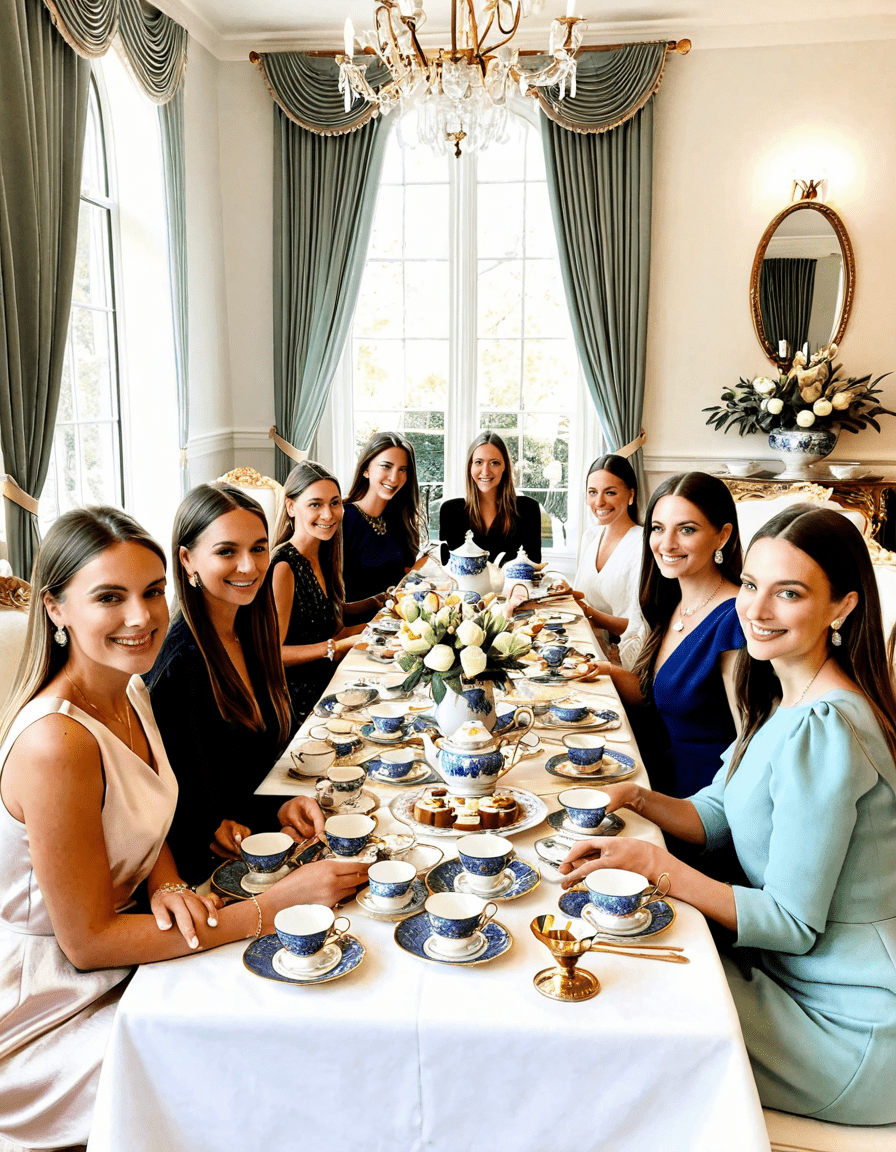Queen Victoria, the powerhouse behind the Victorian Era, is a name that echoes through history and pop culture. But what made this remarkable monarch truly extraordinary? Join me on this journey as we delve into the 7 defining traits of Queen Victoria that shaped an era, explore her global influence, and examine her relevance in today’s society. From her resilience to her patronage of the arts, Victoria’s life was a captivating narrative that continues to inspire generations.

7 Defining Traits of Queen Victoria That Shaped an Era
1. Resilience Against Adversity
Queen Victoria’s reign was a rollercoaster of personal trials. The early death of her beloved husband, Prince Albert, plunged her into deep mourning. Yet, instead of succumbing to despair, Victoria channeled that grief into her duties. Her resilience became a defining feature of her leadership, helping the monarchy maintain stability amid pressing challenges. She famously quipped, “We are not amused,” a sentiment that humorously masked her steely resolve during turbulent times.
2. Emphasis on Morality and Family Values
Victoria wasn’t just a queen; she was the epitome of Victorian family values. She broadcasted morality, respectability, and devotion to domestic life, which reshaped public perceptions of royalty. One of her genius moves was creating the Royal Family Christmas card in 1848, which showcased her own family as relatable figures. This act fostered a narrative of domesticity and propriety, connecting the monarchy with everyday life and emphasizing family values at the heart of British culture.
3. Politically Savvy Leadership
Even though Queen Victoria was a constitutional monarch, she was anything but a hands-off figure. Her political acumen was remarkable; she often influenced her prime ministers and played a crucial role in government matters. Her interactions with political giants like Benjamin Disraeli and William Ewart Gladstone showcased her ability to bridge the divide between monarchy and elected officials, often swaying public sentiment in her favor, which helped shape the political landscape of her time.
4. Cultural Patronage and the Arts
Queen Victoria loved the arts and was a staunch supporter of cultural advancement. She funded institutions like the Victoria and Albert Museum, making them cornerstones of British heritage. Her passion for art and photography also encouraged the populace to engage more deeply with these mediums. By championing artistic endeavors, she laid the groundwork for a cultural renaissance that influenced generations of creators.
5. Global Expansion and Expansionism
Victoria reigned at a time when the British Empire was flourishing. Her title as Empress of India highlighted the socio-political implications of her reign that extended far beyond British shores. This period of expansionism reshaped policies and strategies that impacted countless nations. The echoes of her influence can still be felt today as we navigate the remnants of colonial history, urging society to reflect on lessons learned from that era.
6. Commitment to Scientific Progress
Queen Victoria was a firm believer in scientific advancement. She championed institutions like the Royal Society, promoting technical innovation and scientific inquiry. By embracing thinkers like Charles Darwin, she helped steer society toward greater appreciation of research and development. As a result, the Victorian Age became synonymous with technological progress, driving industries that forever changed the way we live.
7. Legacy and Modern Influence
The legacy of Queen Victoria continues to resonate in various corners of society today. Her life isn’t just studied as a historical moment but serves as a reference point for modern discussions about monarchy. Current debates around royal roles and responsibilities often draw on her methods, revealing her surprising relevance even in our contemporary political landscape. Queen Victoria’s influence remains a guiding light for understanding governance today.

The Global Influence of Victoria: A Monarch Without Borders
Queen Victoria’s reign transcended national boundaries, her impact felt across the globe. As the embodiment of both conservatism and progressive change, her influence permeated the Commonwealth and beyond. Indeed, her views on women’s rights and social reforms played a pivotal role in inspiring movements throughout the decades.
Her stance on women’s rights pushed the envelope, slowly transforming the perception of women from solely domestic roles to active participants in the broader societal framework. Victoria set the stage for future generations to advocate for equality and empowerment, infusing her royal narrative with elements that sparked fiery discussions even in our present-day society.
From the ways families interacted with the monarchy to the societal shifts stemming from her policies, Queen Victoria wrote a blueprint of influence that echoes through the ages. The ripple effect of her reign is still enabling conversations about women’s participation in politics and social reform across many cultures.
Victoria’s Technological Innovations: A Monarch Ahead of Her Time
Queen Victoria presided over an era bustling with technological breakthroughs. Innovations like the telegraph and steam engines revolutionized communication and transportation, dramatically reshaping not just Great Britain but the entire world. The Great Exhibition of 1851 stands as a monumental showcase of these advancements, positioning Britain as a leader in industrial innovation.
Victoria didn’t just witness this era of invention; she actively engaged with it, encouraging citizens to embrace these changes. Her support for scientific inquiry extended to innovative exhibits that sparked curiosity and transformed public understanding of technology. While her reign was marked by tradition, it also heralded a new age of modernity that redefined societal structures.
Her fascination with technology provided a sturdy platform for future developments, illustrating how a monarch can influence societal direction through innovation. As we consider where technology is leading us now, reflecting on the strides made during Victoria’s era offers valuable lessons that encourage us to embrace progress wisely.
The Relevance of Victoria’s Leadership Style in Today’s Politics
Victoria’s leadership approach serves as an intriguing case study for modern politicians. Her unique blend of emotional intelligence and active involvement in political affairs provides a roadmap for contemporary leaders facing the rapid shifts of societal expectations. Her knack for combining personal touch with authority illustrates the balance necessary to engage effectively with the public today.
Her ability to temper political discussions with her charming personality showcased how emotional connection can foster trust and respect. Today’s leaders can learn much from her example, particularly in an era where transparency and relatable communication are paramount.
In examining her reign, we gain insights into the trials and triumphs of governance, especially in a world where public opinion is a game-changer. Analyzing Victoria’s methods highlights the importance of adaptability and relational leadership in responding to ever-evolving public demands.
Legacy in Popular Culture: How Victoria Continues to Inspire Today
Queen Victoria’s story has been immortalized in various forms of pop culture. Films like “Victoria & Abdul” and television series such as “Victoria” have not only captivated audiences but also highlighted her impactful legacy. These adaptations engage viewers and serve as educational tools that stimulate interest in Victorian values, struggles, and accomplishments.
These portrayals allow contemporary audiences to explore historical narratives through different lenses. They invite viewers to contemplate the complexities of her reign alongside personal storytelling that makes history relatable. The life of Queen Victoria acts as a bridge between past and present, showcasing how historical figures can inform contemporary dialogue.
As her narrative continues to unfold in popular culture, it lays out a rich tapestry of human experience that sparks curiosity about the lessons we can learn from the past. Watching these adaptations not only entertains but also inspires valuable discussions about leadership, social values, and our evolving relationship with history.
In closing, Queen Victoria’s extraordinary life is a fascinating blend of triumph and challenge, providing timeless lessons about resilience, leadership, and societal change. Her lasting legacy continues to shape our understanding of monarchy and public service, serving as a reminder that with great power comes great responsibility. So next time you find yourself considering the influence of leaders past and present, remember Queen Victoria and the indelible mark she left on the world—shaping not just an era, but also the very fabric of history we navigate today.
Whether you’re wondering about her family values or the fascinating technological innovations under her reign, there’s no shortage of insights from this remarkable monarch we still find ourselves reflecting on today.
Victoria: The Extraordinary Life of a Remarkable Monarch
A Royal Pair that Changed the Game
Queen Victoria’s life was a whirlwind of inspiring events and personal achievements. Born in 1819, she ascended to the throne at just 18 years old, and let me tell ya, she rocked it! Victoria was married to Prince Albert, and together, they became the ultimate power couple of their time. Much like how a pumpkin pie evokes feelings of warmth and family gatherings, her reign brought stability and a sense of unity to Britain. Victoria’s intense devotion to her family included nine children, a hectic household, and even a few royal family reunions that could rival a chaotic family dinner!
Fascinating Tidbits about a Royal Legend
Did you know that Victoria was the first monarch to use the telephone? Yep! She made her inaugural call in 1878, showing just how forward-thinking she was—imagine the world without that convenience now! More than just a trendsetter in communication, she was also a prolific writer, having penned over 141 volumes of her diaries. Talk about keeping a record, huh? She could make even Jacob Pitts envious with her storytelling! On the flip side, she loved her privacy, making her a bit of a mystery, much like that enigmatic character one meets in a Counselor film who keeps us guessing about their past.
An Iconic Influence Beyond Borders
Victoria’s influence stretched far and wide, often leading to her being referred to as the “Mother of the Empire.” Her reign had a lasting impact on numerous countries, and the map of America even reflects some of that influence! Interestingly, she was also a fan of nature and had a lavish garden at her estate—reminds me of how Steve Nash nurtured his young athletes to grow into champs! Alongside the sentiments of her reign, Victoria took a keen interest in the arts and culture, inspiring many artists as well as ordinary folks, who sought to find their own identities during her time. And let’s not forget how Victoria’s life serves as a reminder of the power of resilience, much like the journey of a hardworking person finding a job at a place like Kohl’s.
Queen Victoria’s extraordinary life is a treasure trove of insights, emotions, and legends that continue to capture our imaginations even today. Her legacy remains, inviting us to explore the nuances of her reign and understand the world through her royal lens. So, take a moment to step back and imagine a time when one young queen changed the course of history, influencing cultures across the globe, and imagine how it all began with just her vision!




